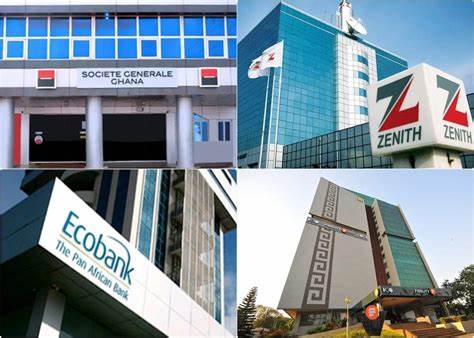Shareholders’ funds of the 23 banks operating in the country grew by 21.2% to GH¢22.2 billion as at the end of February 2021.
This is compared with a 14.6% growth a year earlier.
According to the Banking Sector Development report, this reinforces the stability and resilience of the banking sector.
The report said the sustained growth in banks’ total net worth was driven by strong profit retention.
In summary, the Bank of Ghana said the balance sheet performance of the industry for the first two months of 2021 shows sustained growth in key indicators except for the pandemic-induced weakness in credit growth.
It is expected that growth in the sector will remain strong as the economic recovery process takes hold in 2021.
Assets and liability structure
The structure of banks’ balance sheets remained broadly unchanged during the review period.
However, the report said there were some noticeable differences in the relative shares of the key components, a reflection of the pandemic-induced developments within the sector during the past year.
Investments continued to dominate the assets mix as its share increased significantly from 36.3% in February 2020 to 44.7% in February 2021, reflecting banks’ increasing appetite for less risky assets.
The share of loans and advances (net) however declined to 27.2% from 31.5 percent in the previous year on account of the slowdown in credit growth.
The share of “Cash and Due from Banks” also declined during the period to 19.9% from 24.2%, due in part to the reduction in the primary reserve requirement by 2 percentage points in March 2020, one of the regulatory measures to boost liquidity and encourage lending to critical sectors of the economy and also support sectors badly hit by the pandemic.
Outlook of banking industry
The Central Bank said the robust performance of the banking sector continued into 2021.
Asset growth remained strong on the back of strong deposit and investment growth.
However, credit growth was sluggish due to the lingering effect of low credit demand and supply conditions triggered by the COVID-19 pandemic.
But the financial soundness indicators continued to reflect a well-capitalised and liquid sector. Profitability was moderately affected by the pandemic but effective cost control measures ensured that the impact of the pandemic on the bottom line was somewhat contained.
Latest Stories
-
From thirst to triumph: VIMA delivers safe water to forgotten village in Ghana
52 minutes -
37 Military Hospital shuts down Emergency Unit for fumigation from June 4
1 hour -
Overhaul or scrap Council of State – CDD-Ghana Research
3 hours -
Abdul-Rasheed Saminu sets new National Record in the men’s 100m, books qualification for Tokyo World Championships
3 hours -
Supreme Court allows Trump to revoke legal status for 500,000 migrants
4 hours -
Eugene Boadi: Bryan Acheampong’s impact on entertainment sector
4 hours -
Faizan Zaki, 13, crowned US National Spelling Bee champion
4 hours -
US to double tariffs on steel and aluminium imports to 50%, Trump says
4 hours -
Wontumi denied access to family – lawyer confirms amidst detention
4 hours -
Meet the Brazilian sensation Fonseca hoping to shock Draper
5 hours -
Women ‘worthy’ of French Open night sessions
5 hours -
Alcaraz made to suffer in four-set win over Dzumhur
5 hours -
Minority Caucus probe into TV doctor Ann Sansa Daly’s credentials
5 hours -
In Oval Office farewell, Trump says Elon Musk is ‘not really leaving’
5 hours -
Suspect in South African student’s murder killed in police shootout
6 hours

